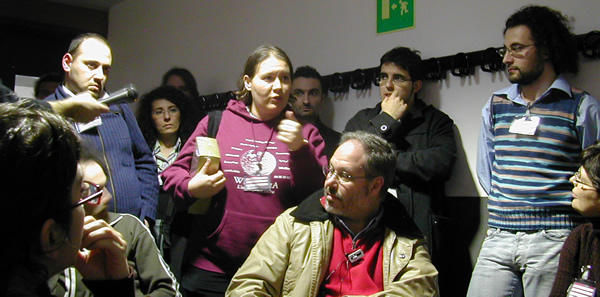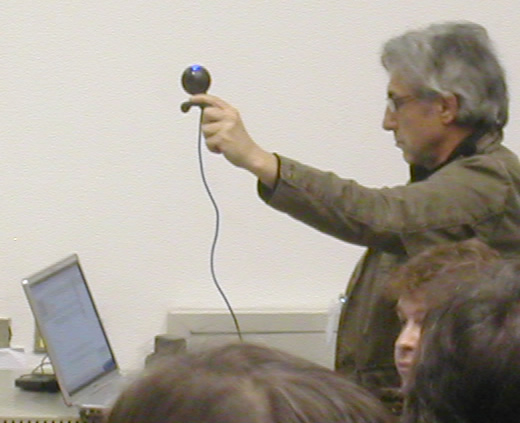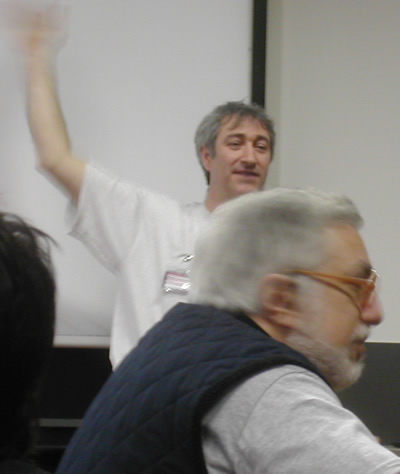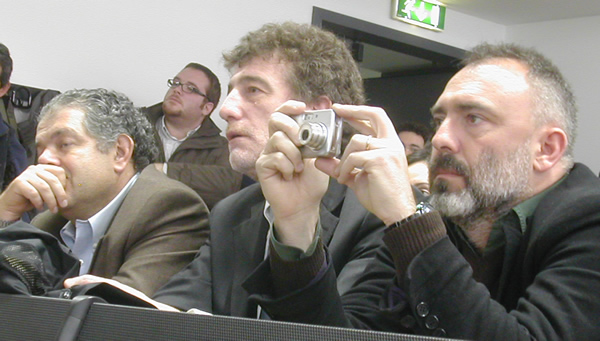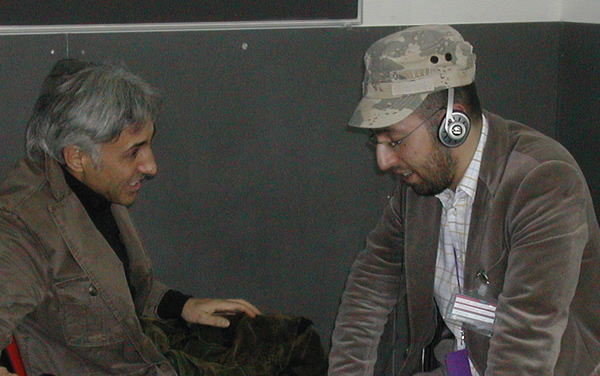above: Frieda Brioschi makes a point
(Unfinished article, and I don’t know when I’ll have time to finish it…)
The Italian government has spent 9 million euros (of an allocated 45, or maybe 54) on a new tourism portal, Italia.it, which has been the subject of a great hue and cry among the Italian blogosphere. ScandaloItaliano provides a quickrecap of this site’s dubious history (in English).
So far, business as usual for Italy: in decades of corrupt government and ever-increasing pressure from organized crime, far greater sums of public money have been far more egregiously wasted. No Italian is surprised. Disappointed, yes, but not surprised.
But, this time, something’s different. Some Italians aren’t just complaining, or shrugging their shoulders and saying: “That’s the way things go here.” Instead, they are asking themselves and each other: “What can we do about it?” And on Saturday, March 31st, they got together to talk about that at rItaliaCamp.
Robin Good captures it all for you.
^ Marco Ottolini drowning, not waving
This lady was extremely pissed off, for reasons that eluded the rest of us. For some reason she thought the event had been touted as an opportunity for tour operators to talk about drumming up business…? She left in a huff. I don’t think anyone figured out who she was.
^ The IBM contingent, expressing varying degrees of interest.
Can the “private sector” and open source cooperate, without either side feeling exploited?
Content Recommendations
for an Italian Tourism Portal
Input from Tourism Operators
The crux of any such project is the content. To be a truly comprehensive national showcase for Italy, the portal must include information about the hundreds of primary and secondary destinations, events, sights, and activities that Italy offers. Gathering such information is a daunting and potentially very expensive task.
Even supposing that an accurate and complete database could be gathered in the first place, it would need to be updated regularly to account for changes in everything from hotel prices to train schedules to museum opening times. Realistically, the information can only be kept up to date by those most directly interested: the hotel and restaurant owners, museum managers, local and regional tourism officials whose attractions are listed.
This creates a chicken-and-egg problem: in order to get people and organizations to participate in a listing, they must perceive enough value in being part of it to offset whatever time and effort they must spend entering and updating their information. The more information the catalog holds, the more valuable it is to its users (tourists) and, therefore, to the data providers (tourism operators).
Input from Tourists
Beyond the hard facts of what is where and how much it costs, a would-be tourist is also interested in a great deal of subjective information: what will I see (or eat), and how much will I like it? To add this dimension requires the participation of other tourists who have already had the experience.
A tremendous amount of this kind of information about Italy is already available online: the Italy boards are among the busiest on travel forums such as Frommer’s and Fodor’s. There are thousands of blog posts about Italy from both residents and visitors. There are thousands of Flickr photos and hundreds of videos.
Robin Good interviews Amanda and me (scroll down the page – the video of us is below where our names appear)
^ Robin Good and Luca Conti
http://wiki.bzaar.net/RItaliaCamp
What’s Next?
Because my readership is largely English-speaking, I’m only including the few pieces I find in English (tell me if you know of more!). A Technorati search will turn up much more in Italian.

